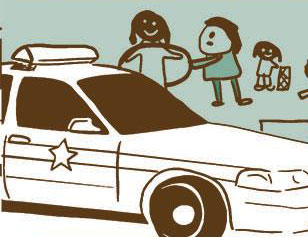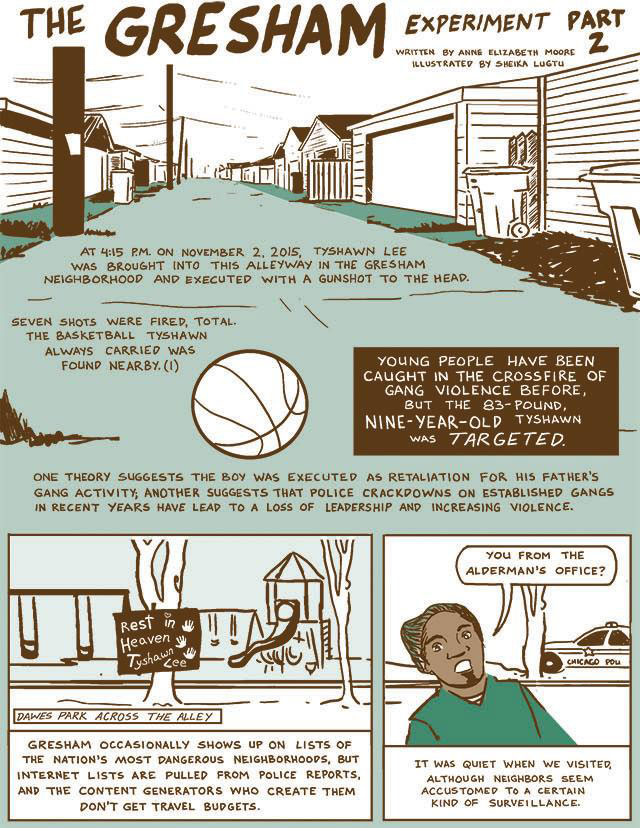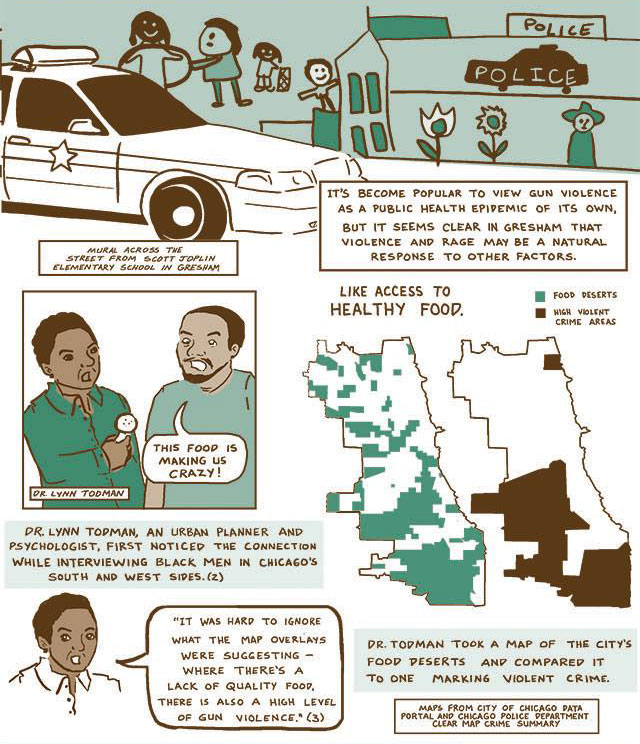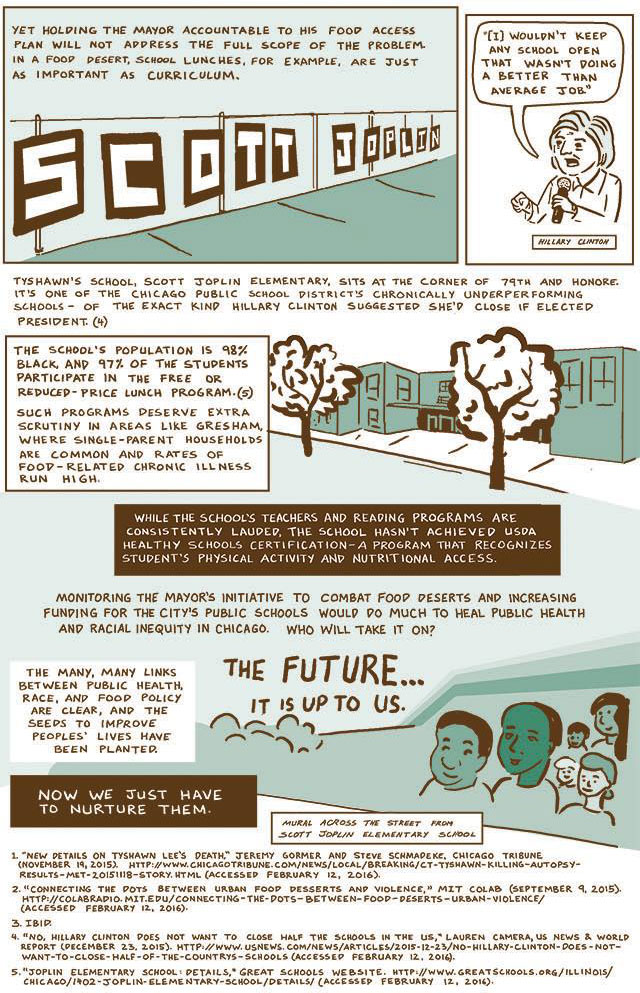Part of the Series
Ladydrawers
 The final strip in the Ladydrawers’ “Growing Season” series, which for the last year has investigated food policy, race and public health in comics form, is “The Gresham Experiment, Part 2.” It’s a follow-up to “The Gresham Experiment, Part 1,” last month’s collaborative strip with Sheika Lugtu and Anne Elizabeth Moore, which explores food access and public health issues on the South Side of Chicago (just a few blocks north of Moore’s home).
The final strip in the Ladydrawers’ “Growing Season” series, which for the last year has investigated food policy, race and public health in comics form, is “The Gresham Experiment, Part 2.” It’s a follow-up to “The Gresham Experiment, Part 1,” last month’s collaborative strip with Sheika Lugtu and Anne Elizabeth Moore, which explores food access and public health issues on the South Side of Chicago (just a few blocks north of Moore’s home).
This strip links food access issues to the mainstream media depiction of the Auburn Gresham neighborhood as violent and dangerous — and the subsequent presentation of gun violence as a public health issue in its own right. But maybe the connection between violence and food access isn’t so complicated: Maybe ensuring the success of in-place food access policies can directly impact the biggest public health issues that disproportionately afflict majority-Black neighborhoods.
It’s a fitting way to end our current series, as The Ladydrawers Comics Collective has some big changes in store. If you missed any installments, you can find all four seasons of strips here. We’ll be taking some time to do a small Midwestern tour and prepare for the release of our first strip collection Threadbare: Clothes, Sex & Trafficking in May. But we’ll be back soon to continue our long-running investigative comics journalism series with a new project that we’re sure you’re going to find fascinating.



Footnotes
1. “New details on Tyshawn Lee’s death,” Jeremy Gormer and Steve Schmadeke, Chicago Tribune (November 19, 2015). https://www.chicagotribune.com/news/local/breaking/ct-tyshawn-killing-autopsy-results-met-20151118-story.html (accessed February 12, 2016).
2. “Connecting the dots between urban food deserts and violence,” MIT CoLab (September 9, 2015). https://colabradio.mit.edu/connecting-the-dots-between-food-deserts-urban-violence/ (accessed February 12, 2016).
3. Ibid.
4. “No, Hillary Clinton does not want to close half the schools in the US,” Lauren Camera, US News & World Report (December 23, 2015). https://www.usnews.com/news/articles/2015-12-23/no-hillary-clinton-does-not-want-to-close-half-of-the-countrys-schools (accessed February 12, 2016).
5. “Joplin Elementary School: Details,” Great Schools website. https://www.greatschools.org/illinois/chicago/1402-Joplin-Elementary-School/details/ (accessed February 12, 2016).
Press freedom is under attack
As Trump cracks down on political speech, independent media is increasingly necessary.
Truthout produces reporting you won’t see in the mainstream: journalism from the frontlines of global conflict, interviews with grassroots movement leaders, high-quality legal analysis and more.
Our work is possible thanks to reader support. Help Truthout catalyze change and social justice — make a tax-deductible monthly or one-time donation today.